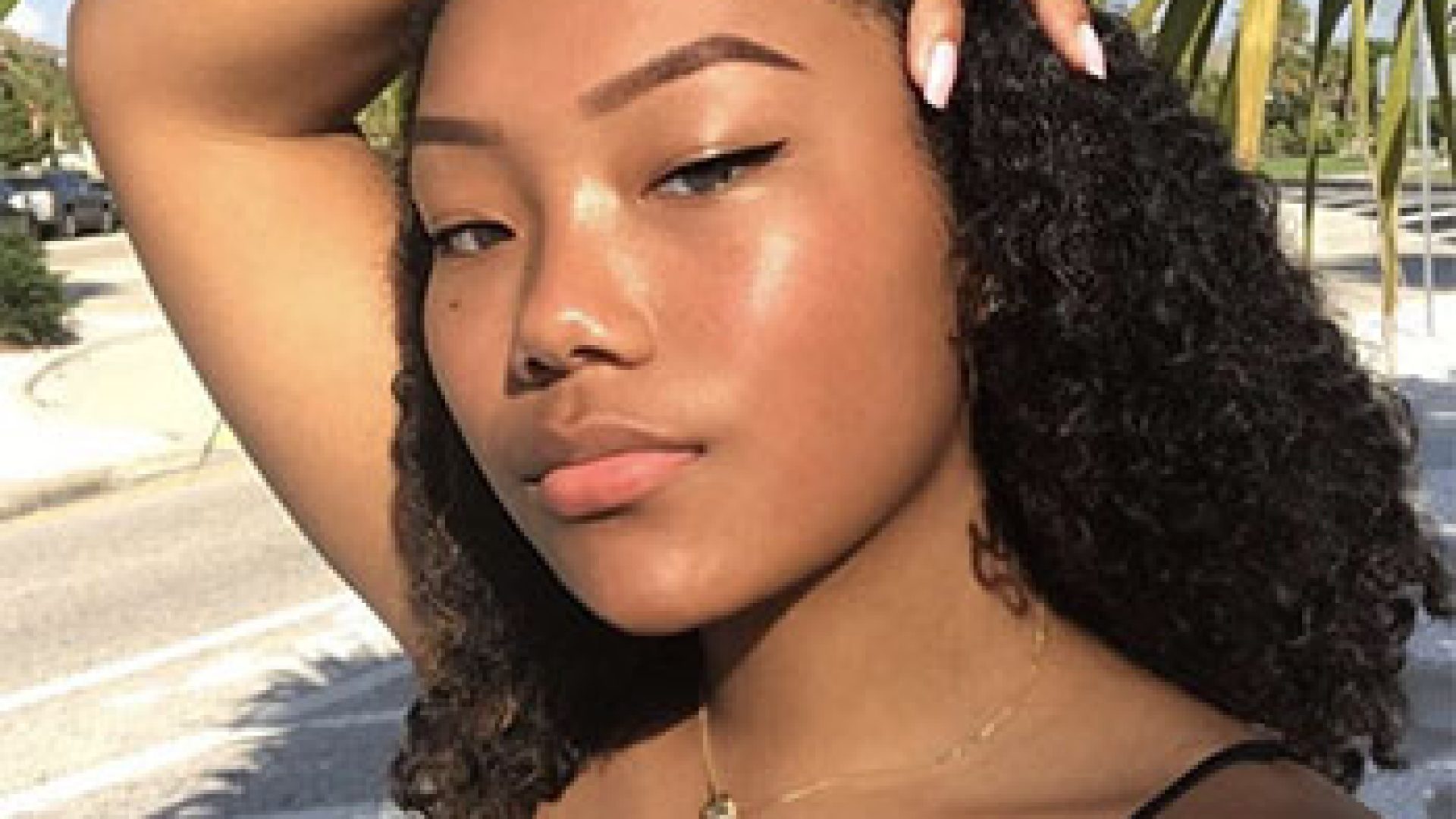

Image:@gottalovelulu
Skin care and natural hair care are both all the rage these days, and the two are much more linked than you might think. While your skin products and your hair products probably live on separate shelves in your house, the two come into contact with each other on your actual body over and over throughout the day. Your hair care products can absolutely affect your skin, sometimes for the worse.
I’ve been thinking about this topic a lot lately, because my skin is not doing well. Most people don’t notice it because I rarely get acne on my face, but it does pop up all over my shoulders, back, and chest. My hair products definitely contribute to this problem.
“What touches hair touches skin,” dermatologist Dr. Iris Rubin told The Zoe Report. “And we are not just talking about your scalp — try putting something on your hair without it getting on your skin, it’s literally impossible.”
Your hair products may rinse off onto your skin in the shower, rub off onto your shoulders later, or reach your skin by way of your pillowcase. Certain hair care ingredients and techniques are especially prone to causing breakouts. But there are steps that you can take to alleviate the issue.
Hair products clog your pores
I never realized that my hair routine had anything to do with my skin until I watched a wash-and-go tutorial from the beloved Jackie Aina. As a bacne sufferer, Jackie Aina knows all too well that hair products can definitely affect your skin. Many hair products clog your pores, leading to breakouts.
To address this issue, Jackie doesn’t just wash and condition her hair in the shower — she applies ALL of her styling products while she’s in there, clips her hair out of the way, and then washes her body. That way, none of the hair “gunk” sits on her skin.
“You want to do your hair first — all the shampoo, conditioner, gunk and all that — and then wash it off of your body so you don’t get chest acne or bacne,” Jackie explains in the video.
Ingredients to watch out for
Some ingredients are more prone to clogging your pores than others. Oils are one common culprit. Coconut oil, grapeseed oil, olive oil, hemp oil, argan oil… Pretty much all of the oils! Similarly, products that are designed to leave a heavy residue on your hair will be more likely to clog pores.
For curly-haired women, this means that a lot of our favorite products can also cause breakouts, because they often contain oils of some kind. Womp womp.
However, oils aren’t the only ingredient that can cause breakouts. Other ingredients that have been observed to cause acne include carrageenan, lauric acid, cetyl acetate, cetearyl alcohol + ceteareth-20, and a long list of other unpronounceable ingredients. On that note, products that contain a longgg list of different ingredients are also more likely to cause breakouts, since they’re more likely to contain one or more trigger ingredients.
Unfortunately, it’s not always easy to figure out which exact ingredients to avoid.
“Many ingredients have no data on whether they can clog pores, and to make things more complex, some ingredients may be ‘safe’ on their own but clog pores when they combine with other ingredients,” Dr. Rubin said.
For that reason, it’s important to pay attention to your own skin to see whether you may be having an adverse reaction to a particular product.
Changes to your routine can help
If you’re experiencing breakouts, some simple changes to your hair routine can alleviate the problem. (It’s smart to target the source of the issue, aka your hair, rather than target the skin itself with acne products.”>
Your first option is to switch up your products. You can try to avoid the culprit ingredients as much as possible; you may want to look for products labeled “non-comedogenic” or just look for products with very few ingredients.
Your second option is to try cutting down on how often you style your hair and/or cut down on the number of products that you use.
But if you LOVE what your current favorite products do for your hair, you don’t necessarily have to give them up. Your third option is to follow a few precautions to minimize how much your hair products come into contact with your skin.
For example, you can do what Jackie does — style your hair in the shower and then wash your body afterward, leaving as little residue as possible on your actual skin. Always rinse your hands after styling your hair before you touch your skin. Finish doing your hair before you apply makeup or moisturize your skin. When you sleep, sleep with a hair scarf to avoid transferring product all over your pillow.
Naturalistas with skin problems, what are your favorite hair products that don’t cause breakouts? Share with us in the comments!